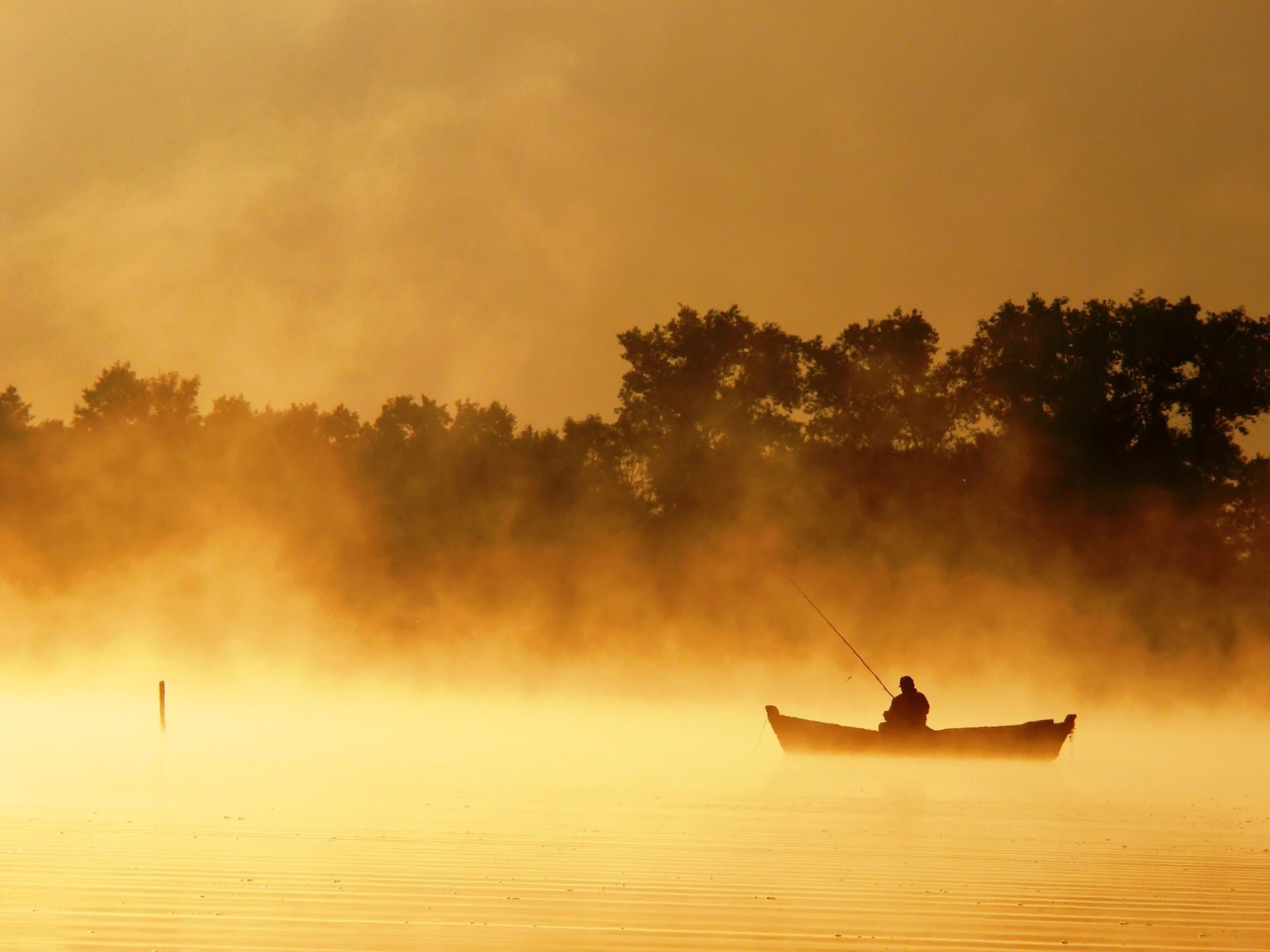There are lots of prob- lems at Cheat Lake, and users of the lake have their ideas on how to solve them. I talked to several pontoon boat owners who were taking their boat out of the lake at the Cheat Lake Park ramp.
Both of those folks thought that dredging the lake by the Ices Ferry Bridge would be a first step.
Both said “they need to dredge…” There is no question that silt is a major problem, and the upper end of Cheat Lake gets more silt after every major upriver flood. But the boater’s response left me wondering who they thought “they” were.
Dredging would be a huge expense, and I can’t imagine the WV DNR or the power company doing it. Even if dredging were done, it would have little impact on hydrilla.
I talked to several fish- ermen about hydrilla. One fisherman said that his biggest problem was get- ting his boat in the water because of the drawdown due to the drought.
That isn’t a hydrilla problem, but boat access in and out is a bit of an issue.
Another very good fish- erman I talked to said that he heard the DNR or the power company were going to use treatments of contact herbicides to reduce the hydrilla.
His comment was, don’t reduce it a great deal as it makes great fish cover. I hadn’t thought of that, but when I walk near the boat docks at Cheat Lake Park, where hydrilla grows along the docks, I often see minnows and bigger fish in the hydrilla.Several fishermen com- plained about the fact that they aren’t catching fish right now. Again, that’s probably a water temper- ature problem rather than a hydrilla problem.Lots of people are upset because the power com- pany is lowering the levels of the lake. However, the power company is appar- ently just following the Federal Energy Regulatory Commissions required minimum flow throughthe dam spillway. People can complain
about that, but the power company is at the mercy of the drought as is everyone.
One fisherman had an interesting idea. Release some grass carp in the lake to eat the hydrilla. I know of two people who bought grass carp and put them in their small ponds because of an algae problem. It worked.
They bought the grass carp from a local private hatchery, and the thing about grass carp is that they are sterile. They do not breed. They can’t breed. That same fisherman said that he talked to someone on the lake in a boat last summer and they were surveying the acreage of hydrilla to keep track of it from year to year. No question, what- ever the acreage, there is more this summer than last.
The power company and the WV DNR are working on a management plan that should be done this winter.
Part of that plan involves putting grass carp in the lake, and another part involves treating parts of the lake in the summer with contact herbicides.
I read somewhere that
Eagle Creek (power com- pany in Canada that owns our lake) has used them to treat hydrilla in several North Carolina lakes with some success.
I know of at least three Cheat Lake dock owners who have purchased cop- per sulfate and placed it in the water near their docks and greatly reduced hydrilla there. To do this, there is an herbicide appli- cators license needed from the WV Department of Agriculture.
There’s a yearly fee for this license, and I don’t expect many citizens to go that route. For that and other reasons, copper sulfate is not an answer for this problem, but I expect some will put it by their dock.
One final comment Hydrilla is not the end of the world for boaters and fishermen in Cheat Lake. It’s taken awhile for things to happen on the hydrilla issue, and this summer’s drought has amplified that, but things are mov- ing. These things take time, and the power com- pany and the WV DNR are working on this.


